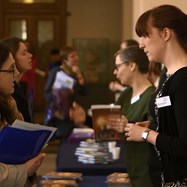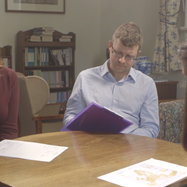GCSE science growth welcome but language decline of deep concern
25 August 2011
Commenting on the release of this year’s GCSE results, Dr Wendy Piatt, Director General of the Russell Group of universities, said:
“A further increase in the numbers taking single science GCSEs is a welcome indication of a growing awareness on the part of schools and GCSE students of the importance of STEM subjects (science, technology, engineering and maths) to students’ future academic and career choices.
“All students whether at state or independent schools should have the opportunity to study separate sciences at GCSE as they are important stepping stones to A-level science and beyond. Pupils who take separate sciences at GCSE are more likely to take STEM subjects at A-level and are more likely to get higher grades in A-level science compared to those who take double-science.
“The significant overall decline in foreign languages means today’s students are at risk of failing to meet the needs of our universities, economy and society.
“We also remain concerned that subject choices are affected by students’ backgrounds. Too few students from some state schools opt for science, maths and languages, restricting their options at A-level and at university and closing off certain career paths. It is therefore crucial that all students are given accurate information, advice and guidance when making choices about subject options which will affect their life chances. Pupils from families with less experience of higher education are in particular need of good information and advice from their schools and careers services.
“As well as differences in subject choices, we are also concerned about the attainment gap between state and independent schools reflected in today’s results. This attainment gap demonstrates the continuing difficulty our universities face as they work to attract students with the most talent, potential and ability from all backgrounds and is the key reason why so few students from low-income backgrounds gain places at leading universities. Historically, this gap has related not only to school type, but also to other factors such as income and social class.”
Notes to Editors
- Entries for the single sciences have increased significantly despite the overall fall in entries: entries for the three sciences have risen by 15.6%: Physics up by 16.4%, Chemistry 16.2% and Biology 14.2%. Entries in Maths also rose by 1.7%. (Source: JCQ)
- The odds of getting an A or B at A level chemistry in the maintained sector are increased by 76 per cent for pupils who take three separate science GCSEs compared to those who took double science. Source: Science and Innovation Investment Framework 2004-2014: Next Steps (March 2006), p.47. Available from http://webarchive.nationalarchives.gov.uk/+/http://www.hm-treasury.gov.uk/media/7/8/bud06_science_332v1.pdf
- All modern foreign language subjects have seen falls in entries, including French (down 13.2%), German (-13.2%) and Spanish (-2.5%). For all languages, the overall fall from 2010-11 is 10.9%, with the trend over 5 years being a decline of 22.3%. (Source: JCQ)
- This is why the Russell Group recently published Informed Choices, our guide to post-16 study options, which aims to improve information about how subject choices at school can impact on university applications. The guide is also relevant for GCSE-level choices, and has some specific advice on page 19.
- Despite accounting for only 8% of entries, independent schools accounted for 17% of A*-A grades. 24.1% of entries in independent schools were awarded A*, and 22.4% in maintained selective schools compared with 5.3% in comprehensive schools. (Source: JCQ)
-
Hamir Patel
hamir.patel@russellgroup.ac.uk
020 3816 1316
-
Hollie Chandler
Hollie.Chandler@russellgroup.ac.uk
020 3816 1307
 X
X


